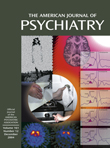Influence of Ethical Safeguards on Research Participation: Comparison of Perspectives of People With Schizophrenia and Psychiatrists
Abstract
OBJECTIVE: Several safeguards have been developed to protect research volunteers, but little is known about how the people involved in this research—the stakeholders—view these efforts to assure participant rights and well-being. The authors’ goal was to examine these perspectives. METHOD: As part of a larger study, 60 people with schizophrenia and 69 psychiatrists rated the protectiveness and influence on patients’ willingness to participate in research of five safeguards: informed consent, alternative decision makers, institutional review boards, data safety monitoring boards, and confidentiality measures. RESULTS: All safeguards were perceived by both the participants with schizophrenia and by the psychiatrists as protective: on a scale of 1–5 on which 1=not protective at all and 5=very much protects, the mean scores ranged from 3.54 to 4.07. Four of the five safeguards were perceived by both the people with schizophrenia and by the psychiatrists as positively influencing patients’ participation decisions. On a scale of 1–5 on which 1=much less willing and 5=much more willing to participate, the mean scores for these four safeguards ranged from 3.86 to 4.30. The mean score for the safeguard of an alternative decision maker, however, was 3.09. The ratings of protectiveness made by both the people with schizophrenia and the psychiatrists were correlated with their ratings of patients’ willingness to participate in studies. CONCLUSIONS: Ethical commitment to research volunteers is expressed in safeguards. These efforts appear to be viewed positively by key stakeholders and may influence research participation decision making.



